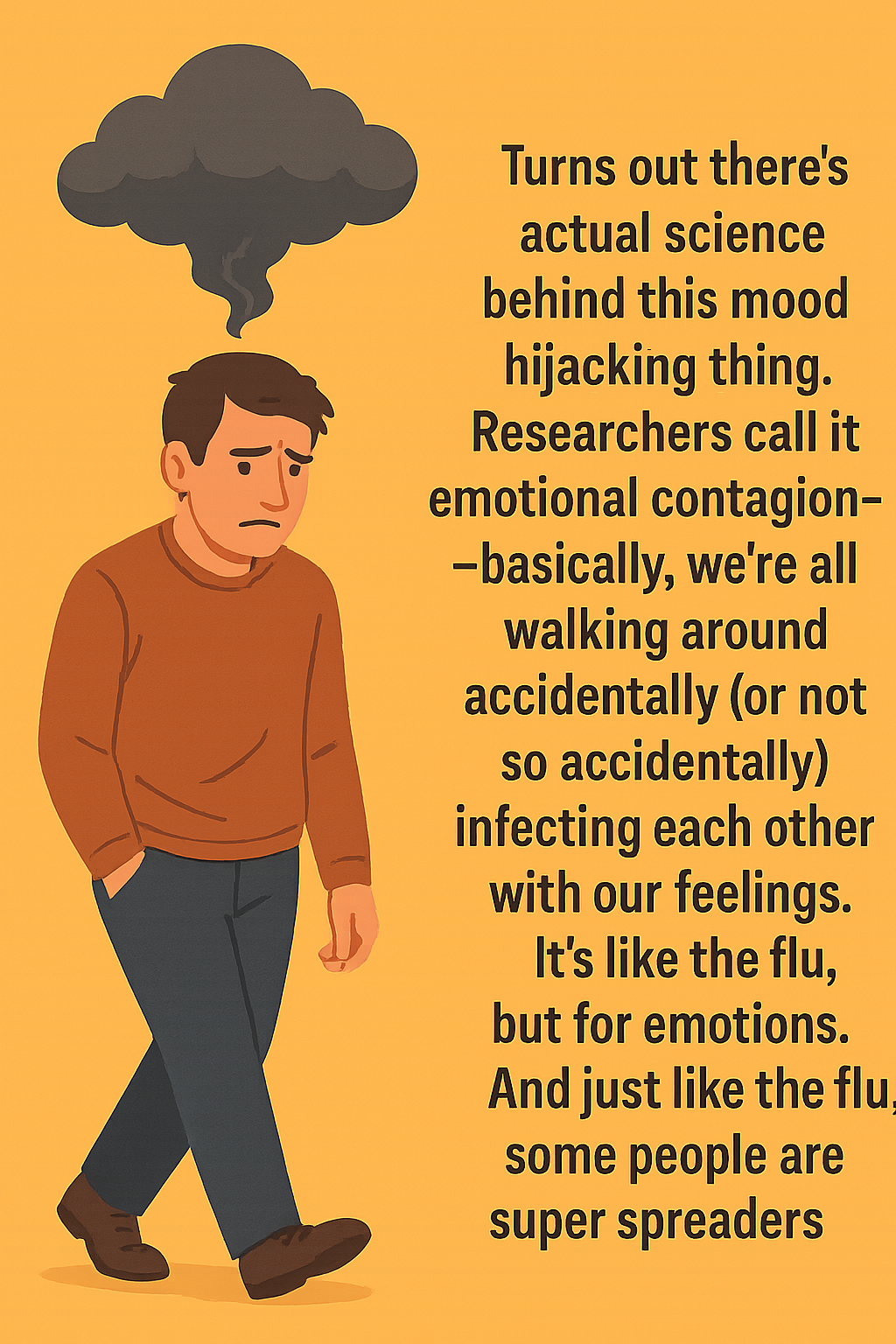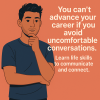
That Thing Where Dave Ruins Everyone's Day
When one person's bad mood hijacks an entire team meeting, there's actual science explaining why—and practical ways to build immunity.
Dave walked into our Tuesday standup looking like someone had just told him his favorite coffee shop was permanently closing. I'm not kidding—the man practically had a storm cloud following him through the door.
Twenty minutes later, our entire team felt like garbage. Sarah stopped mid-sentence during her update. Tom started rubbing his temples. Even our usually bulletproof PM started sighing heavily between agenda items.
I sat there thinking: What the hell just happened?
Turns out there's actual science behind this mood hijacking thing. Researchers call it emotional contagion—basically, we're all walking around accidentally (or not so accidentally) infecting each other with our feelings. It's like the flu, but for emotions. And just like the flu, some people are super spreaders.
The kicker? This emotional flu costs companies something like $8.8 trillion globally in lost productivity. TRILLION. With a T. Because apparently we're all too busy catching each other's bad moods to actually get work done.
The Science of Mood Hijacking
Here's where it gets interesting though. After that disaster of a Tuesday, I started digging into this whole thing. Found some research from Yale about how mood literally ripples through groups like... well, like a virus. The researcher even put a trained actor in groups to test it. Groups with the cheerful actor? They cooperated better, fought less, thought they performed better. Groups with the grumpy actor? Total shitshow.
Building an Emotional Hazmat Suit
So last week when Dave showed up with his signature storm cloud, I tried something different. Instead of bracing for impact, I basically built what I'm calling an emotional hazmat suit. Took about two minutes:
- Noticed the mood bomb walking in (awareness is apparently half the battle)
- Did this weird breathing thing while mentally putting up a barrier between me and the incoming doom
- Focused on my own energy instead of getting sucked into the vortex
Did it work perfectly? No. But I didn't leave the meeting feeling like I'd been emotionally mugged, which was a massive improvement.
The Ripple Effect
The wild part is that my NOT getting infected actually seemed to help. By the end of the meeting, even Dave had shifted from "everything is terrible" to "okay maybe we can figure this out."
Look, I'm not saying you need to become some kind of emotional robot. Connection matters. Empathy matters. But there's a difference between supporting your colleague through a rough patch and letting their rough patch become your rough patch.
The Real Cost of Emotional Contagion
Think about your worst mood spreader at work. You know who I'm talking about. The person who walks in and suddenly everyone's day gets 20% worse. Now imagine having an actual strategy for dealing with them instead of just... suffering through it.
That's basically what I've been working on. Building better emotional boundaries without becoming a jerk. Learning to recognize when I'm catching someone else's mood versus having my own legitimate reaction. It's like developing emotional antibodies.
Who would've thought that not letting Dave's bad day ruin everyone else's day would be good for business?
Anyway, if you're tired of being at the mercy of everyone else's emotional weather, there are actual techniques for this. Not woo-woo stuff, just practical skills for managing your emotional environment.
Because honestly? Life's too short to let Dave's mood be your mood.
Ready to Build Your Emotional Immunity?
Learn practical techniques to protect your energy and maintain your focus, no matter what mood bombs are dropping around you.
P.S. - Dave's actually a great guy when he's not in storm cloud mode. We've all been Dave at some point. The goal isn't to judge Dave—it's to not become Dave.








